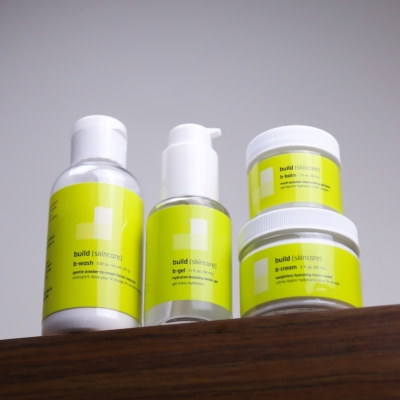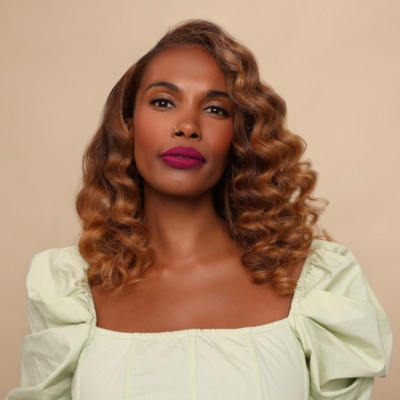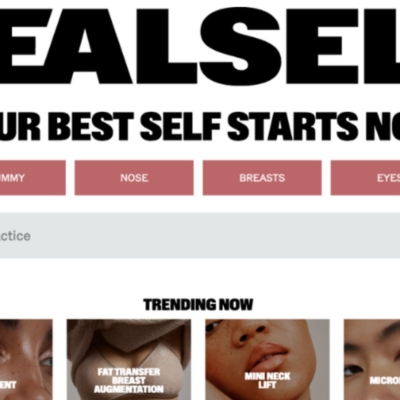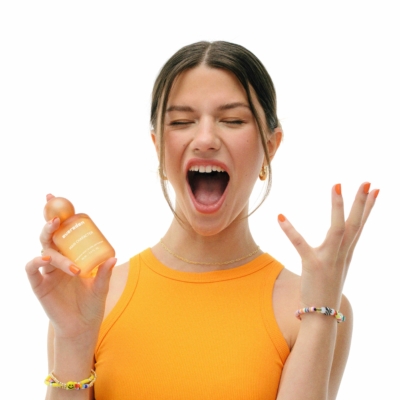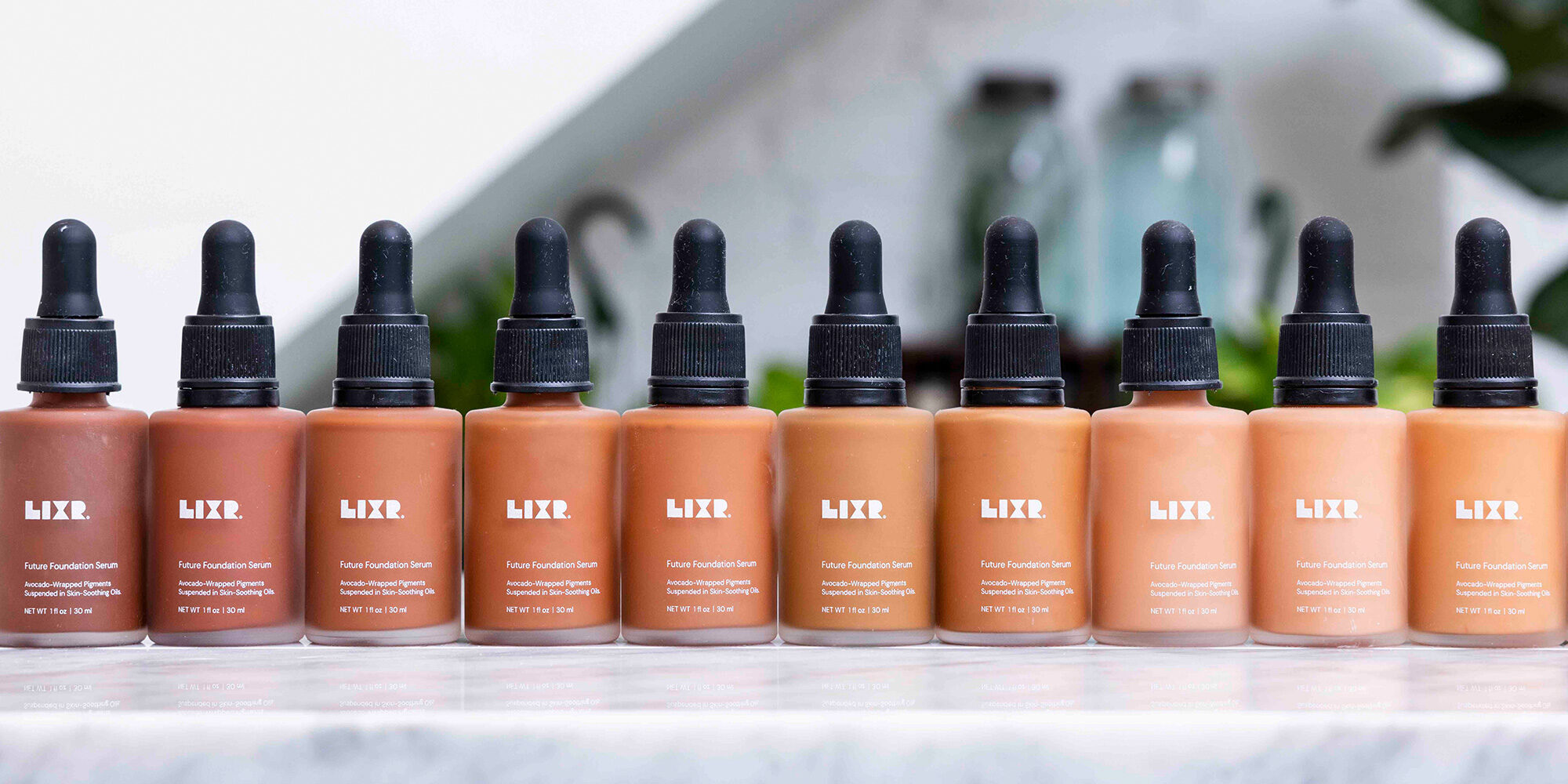
At New Brand Lixr, Bite Beauty Founder Susanne Langmuir Sets Out To Solve Foundation Customization
“I am out to do for complexion what I did for lips,” says Susanne Langmuir, a serial beauty entrepreneur whose latest venture is Lixr, a business striving to match people with tinted foundation serums tailored to them.
Langmuir has done quite a lot for lips. She founded Bite Beauty in 2011, which specialized in lipsticks safe to eat—or bite—available via retail distribution before clean beauty was recognized enough to be controversial and customizable at Lip Lab store locations. LVMH Moët Hennessy Louis Vuitton-owned incubator Kendo acquired Bite Beauty in 2014, when it was reportedly generating $30 million in annual sales, and shuttered the brand last year, although continues to operate nine Lip Lab locations.
At Lixr, there’s a similar model: The brand has its own experiential retail format (its first apothecary opened late last year in Toronto, where Bite Beauty previously made its retail debut and Langmuir is based), and products that can be picked up by third-party retailers. But Langmuir is taking on a harder challenge with complexion customization. Several companies have tried it to limited success. Lancôme’s Le Teint Particulier and Shiseido’s MatchCo., for example, are hardly household names. Prescriptives was a personalization pioneer, but Estée Lauder closed it in 2009.
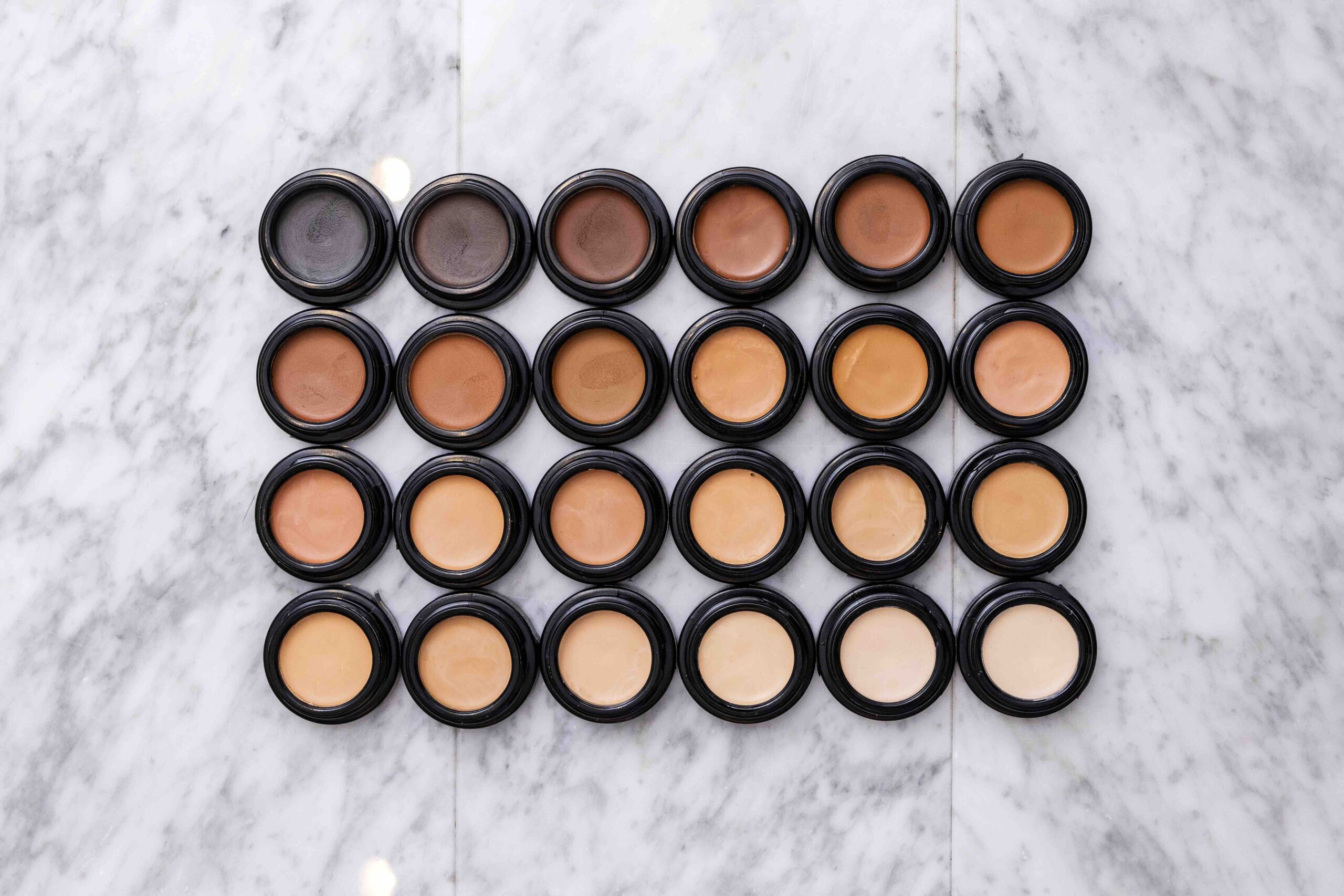
Foundation customization concepts haven’t yet convinced consumers they yield better foundations than conventional complexion concepts. Langmuir pinpoints product performance as primarily to blame. For Prescriptives, however, she says, “It wasn’t easy to expand the concept at the retail level. You had a very unique, time-consuming experience with somebody at the counter. One of my favorite foundations in history was created at a Prescriptives counter, but it was hard to replenish.”
Lixr departs from earlier foundation customization attempts in two important ways: It incorporates artificial intelligence and arrives as skincare-driven foundations are ascendant. In tandem with human expertise, the brand harnesses an AI-driven app that identifies skin concerns, skin type, undertone, coverage preference and more. Langmuir explains it can detect specifics about a person’s face such as whether they have dehydrated skin or darkness under their eyes.
“It’s a combination of those things that allow us to create a completely personalized perfect fit,” she says. “Foundation is a love-hate category in beauty. It generally gets a very low love score because it’s so hard to find a foundation, but, when people find the right fit, most are pretty loyal because it’s so hard to find. The AI app makes the process simple, and you get exactly what you want for your skin.”
“The AI app makes the process simple, and you get exactly what you want for your skin.”
Developed over the course of two years, Lixr’s $66 customizable Future Foundation Serum is a skincare-makeup hybrid formulated to help the skin rather than simply cover it up. The product contains squalene, hemi-squalene, jojoba seed oil and avocado-wrapped pigments. Its pigment concentration is 20%, a figure Langmuir says is high for foundation. At Lixr’s apothecary, customers can add six different active ingredient boosters to it for plumping, radiance, hydration, redness reduction, oil control and pore minimization.
The foundation is designed to deliver a skin-like finish. For customization purposes, it’s buildability enables it to have greater room to maneuver. “There are still very two distinct types of people. People that want full coverage. They want to cover freckles and imperfections and maybe slightly alter the tint of their skin, but the emerging category and the larger category is of people that just want to look their best,” says Langmuir. “They want healthy skin. They want it to be hydrated. They don’t necessarily want to cover up their unique features. A really nice tint that makes the skin look fresh and healthy is the category we fit into.”
She believes the foundation segment is permanently shifting away from heavy coverage. As part of that shift, she foresees a role for Lixr in setting up foundation customization shop-in-shops at retailers. Clean beauty retailers are among the early targets for the shop-in-shops. She hopes to spread branded apothecary locations, too, but predicts the shop-in-shop opportunity is bigger than the standalone retail opportunity.

In Toronto, Lixr’s 800-square-foot apothecary has a production facility in the back, but spaces of roughly 400 to 600 square feet are expected for Lixr locations going forward. The Toronto location has two to three people on staff that walk customers through the customization protocol. “They’re very skilled,” says Langmuir. “They probably could match your shade from 20 feet away.” She notes, “Once we know your shade and undertone, then we can pair you with a brightening concealer, highlighter and contour stick and suggest lip shades.” Priced at $28, Future Foundation Stick is Lixr’s 24-shade multipurpose conceal, highlight, contour, cover and blend stick.
Complexion is the centerpiece of Lixr’s assortment, but the brand isn’t isolated to it. It has about 150 stockkeeping units that push it into skincare, body care and lip products, including $34 Rose Bath & Shower Oil, $24 Nocturnal Kiss Lip Mask, $38 The Calendula Elixir, $34 Calendula Orange Butter and $28 Better Than Lipstick. A mineral sunscreen and further lip items are in the product pipeline.
Many of Lixr’s products spotlight star ingredients like calendula cultivated on Langmuir’s 52-acre farm. “The brand is farm-to-face beauty. It’s a culmination of the last 20 years for me sourcing really good, healthy organic ingredients and formulating high-performance products that are luxurious and head to toe,” says Langmuir. While she acknowledges it can be advantageous for a brand to concentrate on a single product category, she says, “I was just really compelled to have universal products for skin and body.”
“Lixr is the culmination of everything I’ve done and learned.”
Langmuir hasn’t latched onto the term “clean beauty” to describe Lixr. She says her view of clean beauty is that it should evolve to emphasize transparency about what ingredients are and where they’re from. At Lixr, she’s extremely conscious about the ingredients she puts in and leaves out of its products. The brand’s complexion products avoid silicones due to questions about their environmental impacts and lack of skin benefits.
“To me, you can either have a twinkie or you can have a superfruit smoothie in terms of what you are feeding your skin,” says Langmuir. “Silicone is a functional ingredient that improves performance, but it does nothing for your skin.”
Lixir doesn’t avoid animal-derived lanolin and beeswax. Langmuir explains, “A lot of brands that are clean have decided not to use those ingredients. There’s a huge trend to veganism in cosmetics, but I’m making a very clear statement for Lixr that I use ingredients that are cruelty-free—where the come from and how they are produced matters—but I’m not on the vegan bandwagon. People have really clear ideas about these ingredients. I’ve made the decision that, on lips, nothing works as well as lanolin.”
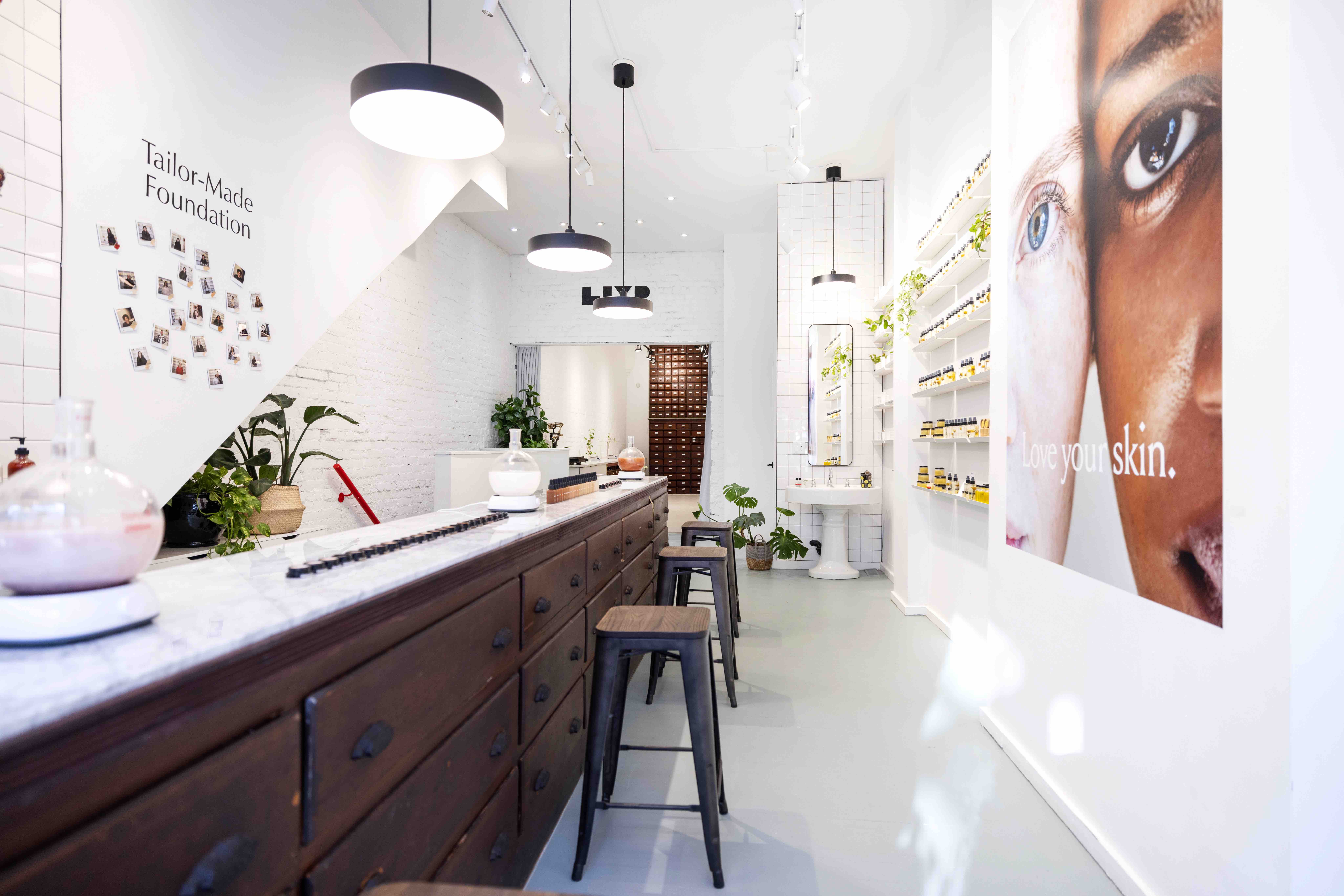
Langmuir declined to disclose a sales projection for Lixr’s initial year on the market. For now, she’s focused on solidifying its concept and initiating conversations with retailers for shop-in-shops. Langmuir has self-funded Lixr so far, but has been in talks with an investor to inject resources into it to grow it.
After she left Bite Beauty in 2018, Langmuir, who also founded the brand Susanne Lang Fragrance, established the incubator SL&Co and launched the waterless skincare brand An-Hydra from it. An-Hydra’s products will be rolled into Lixr, but Langmuir isn’t disbanding the incubator. At the moment, though, she says, “I’m pretty much all hands on deck with Lixr. Lixr is the culmination of everything I’ve done and learned.”

